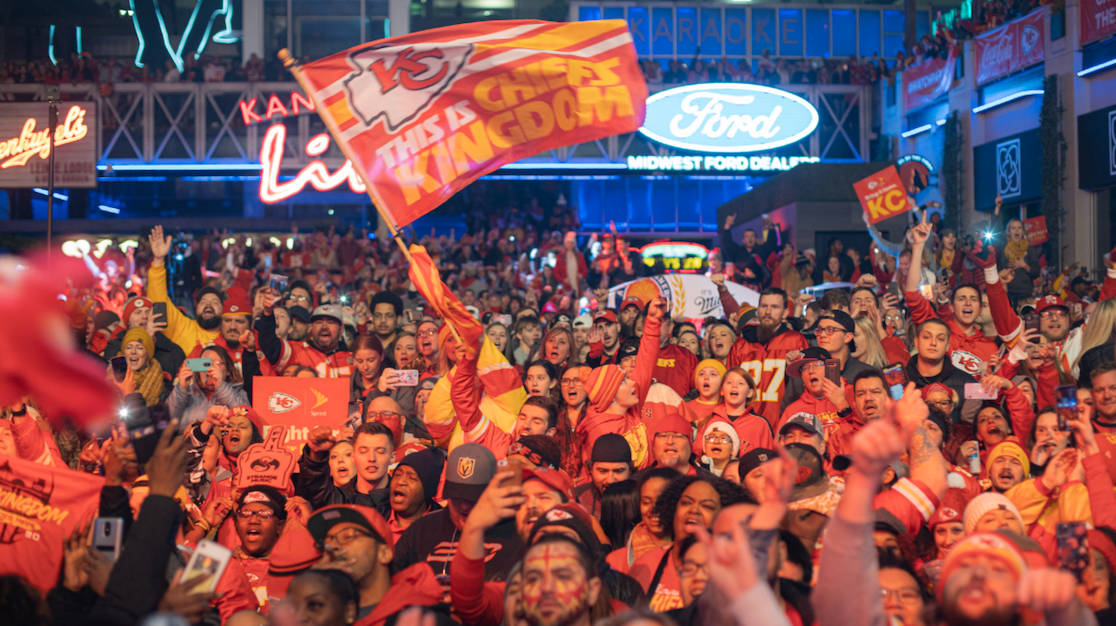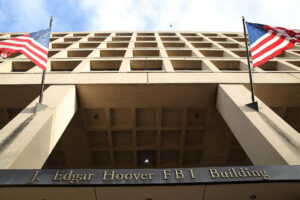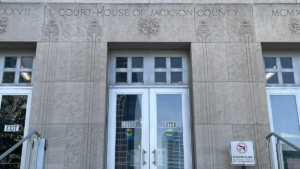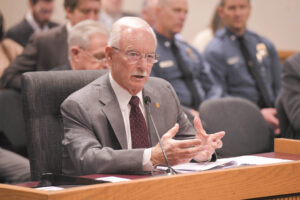As the Kansas City Chiefs get ready for a Super Bowl appearance with the San Francisco 49ers on Feb. 11, Missouri lawmakers advanced a measure to raise the penalty for shooting a gun skyward in celebration.
Kansas City saw more celebratory gunfire on Sunday — an increase from when the Chiefs won the AFC championship a year earlier.
One Kansas City lawmaker who is sponsoring a version of the bill has called on the Chiefs to urge fans to refrain from firing their guns into the sky. Democratic Rep. Mark Sharp said his request has gone unanswered by the team.
Celebratory gunfire poses a problem for law enforcement and communities after big events, especially major holidays like New Year’s Eve or July 4. But in recent years as the Chiefs have consistently had playoff successes, Kansas Citians increasingly point their firearms at the sky and shoot.
The Kansas City Police Department says the gunshot detection service ShotSpotter shows the problem getting worse.
In 2023, when the Chiefs won the divisional round playoff game, ShotSpotter recorded 33 rounds. This year, the detection system recorded 147 rounds. When the Chiefs won the AFC championship in 2023, it recorded 102 rounds. This week, that number rose to 130 rounds.
In 2023, Kansas City broke its homicide record with 182 homicides recorded across the city. But homicides aren’t the only measure of consequences from gunfire, celebratory or not, said Tom Chittum, the current senior vice president at SoundThinking, the company that runs the ShotSpotter system.
“We often use homicide as a measure of violent crime, but it is a very imprecise measure,” Chittum said. “Murders don’t often go undiscovered and they’re very easy to count. But the fact of the matter is the consequences of gun violence go so far beyond homicides.”
Is it possible to deter celebratory gunfire?
It can be difficult for law enforcement and city officials to convince people not to participate in celebratory gunfire if residents don’t truly understand the consequences, said Chittum, who was the chief operating officer for the Bureau of Alcohol, Tobacco, Firearms and Explosives.
A theory called deterrence is helpful in understanding how to reduce celebratory gunfire. The certainty and speed of punishment have been shown the strongest ways to deter crime. The severity of the punishment, on the other hand, is less influential.
“Some distant severe punishment doesn’t have the same effect,” Chittum told The Beacon.
On July 4, 2011, an 11-year-old Kansas City girl, Blair Shanahan Lane, was killed by celebratory gunfire. Since then, lawmakers have been attempting to pass a bill called Blair’s Law, which would raise the penalty for shooting a gun into the sky.
A version of the bill advanced out of a Missouri Senate committee last week.
Shannon Cooper, a lobbyist for Kansas City, testified in support of the legislation.
“You’ve all heard this before, but what I would say is the first day of January, if you looked on social media,” Cooper said, “it was amazing the number of individuals, residents of this state, in our metropolitan area who took it upon themselves to video themselves participating in celebratory gunfire.”
This article first appeared on The Beacon and is republished here under a Creative Commons license.
Our stories may be republished online or in print under Creative Commons license CC BY-NC-ND 4.0. We ask that you edit only for style or to shorten, provide proper attribution and link to our website. AP and Getty images may not be republished. Please see our republishing guidelines for use of any other photos and graphics.





